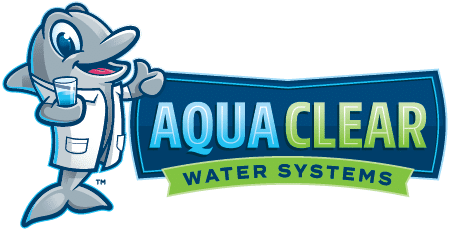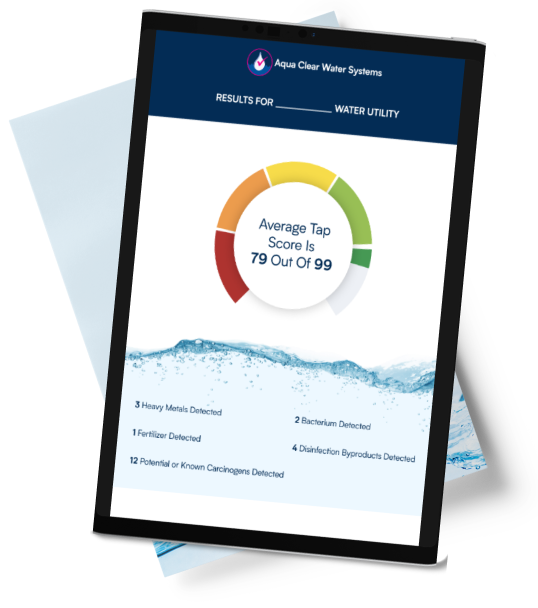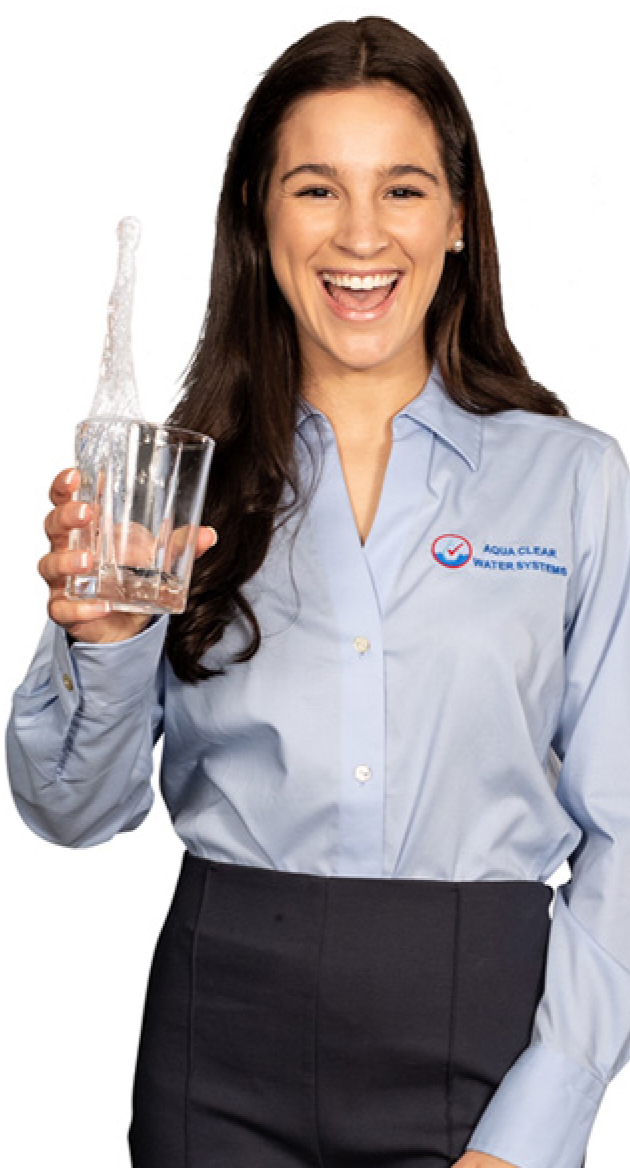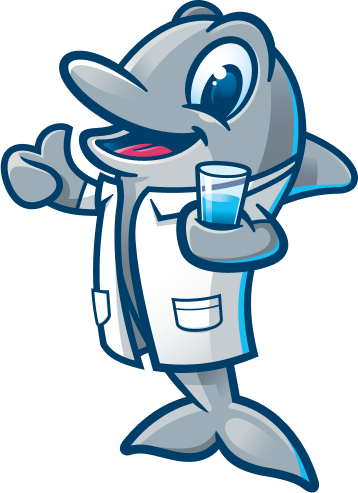Hard water vs soft water: hard = bad, soft = good. This is a very simplistic look at the issue. Hard water is water that contains relatively large concentrations of calcium and magnesium. It results in unsatisfactory showering and hair-washing. Skin and hair can both feel a little rough and dry when they have been bathed in hard water. It’s those elements from the water finding new homes on your body and it’s not exactly harmful but it is, for most people, somewhere between unwanted and unacceptable, perhaps even unbearable. Other signs of hard water are crusty deposits in the coffee pot and white spots on glassware that have been in a dishwasher. These are far from the only places the calcium and magnesium are present, but they are ones you can see. This stuff is everywhere: in your pipes, in your faucets, in the washing machine, and the water heater, and it reduces efficiency, sometimes to the point of making things malfunction. Ignore it at your peril, because getting a new washing machine or water heater is an expense nobody wants.
Hard Water by Zip Code
Are you wondering how to find out if you have hard water? The answer is: probably yes. Most parts of the US have hard water. You can even look it up online. Hard water by zip code will get you results. Hard water in the United States is a fact of life and, of course, it has been defined and units of measurement devised.
So, if you want to know how hard your water is, you can see it measured as milligrams per liter, parts per million, or grains per gallon. All this really tells you, though, is how well or badly off you are in comparison with the rest of the country, and that’s not really the point.
The point is whether this bothers you or not, and if it does, you don’t just have to accept it. You can get a professional water purification company to install a water softener system.
Jargon alert: here is where the explanation gets a little technical. Typically, water softening will involve replacing the calcium and magnesium ions with sodium or potassium. Don’t know what an ion is? You are not alone, and it is not important. You replace the unwanted elements with acceptable ones.
Is Nashville Water Safe to Drink?
This is another question with a simple basic answer. Municipal/government water has to be safe to drink because that is part of the water department’s job. But that is not to say it is perfect. It might not just be the hardness, either. That mainly happens depending on what kind of rock it travels through when it falls to earth and soaks into it. Limestone is a particularly bad offender in this respect but think of what else water must go through and pick up traces of. Manure, fertilizer, pesticides, and simple, old-fashioned dirt. Is it any wonder water contains impurities?
If you have your own supply from a well, the responsibility is yours alone, so you really should do something about it ASAP. In addition to high levels of iron, lead and so on, there could be toxins in there. Nashville water quality in general is not a cause for concern, but water is such a vital commodity that you owe it to yourself, your family, and friends to get your supply tested.
Frequently Asked Questions About Water Quality and Testing
Is US tap water filtered?
Yes, US tap water is treated but NOT filtered by municipal systems to meet safety standards. However, quality varies, so additional home filtration is sometimes preferred.
Is it necessary to filter tap water in the USA?
While generally safe, filtering tap water can improve taste and remove residual contaminants like chlorine, lead, and pesticides, offering extra peace of mind. When tap water smells like chlorine, it often indicates the presence of disinfectants used to keep the water supply safe from harmful microorganisms.
How to filter water in the US?
Common methods include:
- Activated carbon filters: Remove chlorine and organic compounds.
- Reverse osmosis systems: Comprehensive contaminant removal.
- UV purifiers: Kill bacteria and viruses.
- Water softeners: Address hard water.
Why do Americans have water filters?
Americans use water filters to improve taste, remove residual chlorine, and eliminate potential contaminants, ensuring higher water quality and safety.
What is the best way to treat well water?
A comprehensive approach includes sediment filters, activated carbon filters, UV purifiers, and possibly a reverse osmosis system for drinking water. Regular testing and tailored solutions are essential, because all well water is different in quality.
What is the healthiest water to drink?
Clean, filtered water free from contaminants is healthiest. Reverse osmosis water with added minerals is a great option, balancing purity and essential nutrients.
Should you filter tap water in the USA?
Filtering tap water provides extra safety and improves taste, addressing residual chlorine, lead, and other potential contaminants.
What contaminants are not removed by reverse osmosis? RO may not remove certain pesticides, VOCs, and chlorine unless combined with pre-filters like activated carbon.
Does reverse osmosis remove fluoride and chlorine?
Yes, reverse osmosis effectively removes both fluoride and chlorine, ensuring clean and safe drinking water.
Do Brita filters remove PFAS?
Brita filters are not designed to remove PFAS. For effective PFAS removal, a reverse osmosis system or a filter certified for PFAS is recommended.
How to test for pure water in the laboratory? Methods include:
- TDS meters: Measure total dissolved solids.
- Spectrophotometry: Detect specific contaminants.
- Microbiological tests: Identify bacteria and viruses.
- Chemical analysis: For heavy metals and other pollutants.
What is the healthiest pH for water? The healthiest pH for drinking water is 6.5-8.5, ensuring the water is neither too acidic nor too alkaline and safe for consumption.
How do you test the pH level of water with a kit?
- Collect a sample: In a clean container.
- Dip the test strip: Into the water.
- Wait for the color change: Compare to the provided pH scale.
Is Tennessee tap water good to drink?
Tennessee tap water is generally safe, treated by municipal systems. Quality varies, so some residents use additional filtration for improved taste and safety.
Can you test water for lead yourself?
Yes, using home test kits available at hardware stores or online. These kits include test strips or collection bottles sent to a lab for analysis. Professional testing is more accurate.
How can I find out how much iron is in my water?
Use a home test kit designed for iron detection or send a water sample to a certified lab for detailed analysis. We offer free water testing to see what type of iron you have.
How do you test for iron ions in water?
Use a water test kit with specific reagents for iron, adding the reagent to a water sample and observing the color change, compared to a color chart. We also offer free water testing to identify specific issues with your water supply.
How to tell if your water has too much iron?
Signs include:
- Reddish-brown stains: On sinks and laundry.
- Metallic taste: In drinking water.
- Cloudy water: Due to iron particles.
- Reduced water flow: From clogged pipes.
How do you test the pH of drinking water?
Use a pH test kit or meter:
- Collect a sample: In a clean container.
- Dip the test strip or electrode: Into the water.
- Read the result: Compare the strip color or read the digital display.







